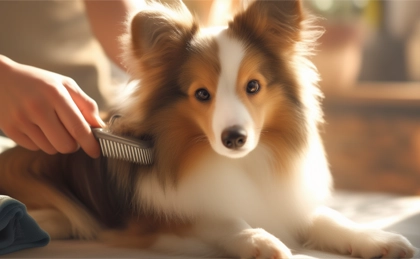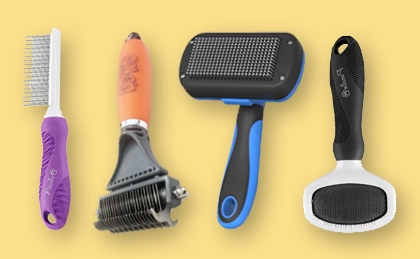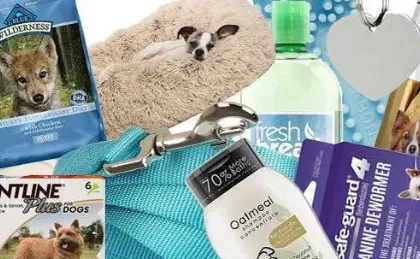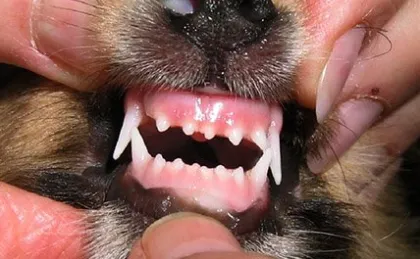Welcome to Sheltie Planet, where these eager and expressive small dogs steal the limelight. From the windswept hills of Scotland to your living room, we celebrate every member of the Shetland Sheepdog breed.
This site has many articles from a long-time Sheltie owner, from advice on grooming your Sheltie at home, to fun insights about Sheltie intelligence, to community stories like these adoption tales. Whether you're a dog owner, an aspiring rescuer, or simply have a soft spot for fur, you're in the right place to fall in love with everything Sheltie.
What Do Shelties Look Like?
First up: how do you spot a Sheltie? Look for that thick, billowing fur and long, dainty nose. To the uninitiated, Shelties look remarkably like mini Lassies, which is the result of extensive cross-breeding with Rough Collies. However, few people know that since 1700, Shelties were also crossed with Border Collies, Pomeranians, Papillons, and Corgis.

Rough Collie vs Sheltie.
You can recognize a Sheltie by the straight double coat... the long, tapering face... the bushy, low-set tail... and the smooth, agile gait. Size-wise, American Shelties have slightly more variability, growing to 13-16 inches (33-41 cm) at the withers, compared to English Shelties at 14-14.5 inches (36-38 cm). However, plenty of Sheltie pet owners wind up with fluffballs that fall outside breed standard due to the existence of puppy mills, backyard breeding, and random genetic throwbacks.
Are Shelties Good Family Dogs?
These furry little munchkins make wonderful family pets as long as they're well-socialized with children early on. This means exposing your puppy to children of all ages so they can become familiar with their behaviors. Once your Sheltie is comfortable around kids, they can join in with all family activities: herding balls along the beach, playing hide-and-seek, or zooming around with no apparent purpose whatsoever.
Don't worry if your Sheltie puppy frequently nips and play bites when they're young. Puppies explore with their mouths and sometimes their teeth get in the way—not to mention chewing encourages adult teeth to emerge. Puppy nipping can be frustrating and the best solution is to yelp sharply, withdraw from play for a few seconds, and redirect them to a toy instead. Once the adult teeth are in, bite inhibition teaches dogs it's never ok for their teeth to make firm contact with your skin.
How Do I Groom My Sheltie?
From 5-6 months old, Sheltie puppies develop a soft, dense undercoat that must be brushed out carefully to avoid matting. Severe matting is not only painful but promotes skin infections and diminishes the ability of the dog to thermoregulate. Read my article on Sheltie grooming to learn the best ways to brush your Sheltie at home.
What's The Sheltie Temperament Like?
Shelties are sweet, quirky, and expressive. Many are highly vocal which is to say they bark, whine, howl, whimper, sing... and talk. Fortunately, they can be trained to stop barking with firmness and consistency. Being a small dog breed, Shetland Sheepdogs are naturally gentle, yet as alarm dogs, they'll alert you to any unusual sights, sounds, and smells with vigorous barking. For instace, Howard barked persistently at the mere smell of bleach, while Piper howled with utmost vigor at the answering machine!
Shelties can get along well with other pets—even cats, as long as they can stand their ground under the pressue of being herded. Once your Sheltie has cornered the poor feline, he won't know what to do. Ideally that cat will just walk away all sassy, thus reducing the dog's instinct to chase and control her next time. Exposing your Sheltie to other animals early on helps familiarize them while they're still highly accepting of novel experiences.
Should I Get a Sheltie Puppy?
With their big floppy ears, beautiful almond eyes, and silky soft fur, the Sheltie puppy can be deliberately cute on demand. Still, puppies are hard work. They demand constant supervision so they don't pee everywhere, chew on cables, get stuck in small places, or escape through fence holes. There's also the responsibility of housetraining, obedience, puppy vaccinations, neutering/spaying, and socialization.
If you can handle all this and have $1,000-$2,000 for a Sheltie puppy, make sure you reach out to a reputable breeder. You'll also need to have your puppy desexed for $200-$600 in their first year. If this is all too much, you can always rescue a Sheltie instead for around $150-600. Rescue Shelties are already desexed and vaccinated, and are very much in need of a forever family.
How Do I Train My Sheltie?
The number one rule of dog training is to build a relationship based on mutual trust and respect. So before you begin obedience training, focus on forming a loving bond with your Shetland Sheepdog so you can understand his needs and instincts, while allowing him to understand and develop trust in you. Show affection, define boundaries, and treat any breaches with kindness but firmness.

Our last AGM voted on the purchase of more Peanut Butter Futures.
What's the best way to train a Sheltie? Like children, dogs need to be shown the rules explicitly before they can follow them. Clicker training is based on classical conditioning with positive reinforcement. When paired with a food reward, clicking habituates the appropriate response with the goal of removing the food reward entirely. It's a natural way train new behaviors, sometimes in as little as six repetitions.
Are Shelties a Healthy Dog Breed?
Well-bred Shelties are very healthy. In terms of lifespan, they typically live for 12-14 years, which equates to humans in their 70s. Your Sheltie is more likely to enjoy a long lifespan if you take care of his diet, exercise, vaccinations, and dental hygiene.
However, historic inbreeding left many dog breeds with a pool of common genetic diseases. In Shelties, this pool includes patellar luxation, hip dysplasia, dermatomyositis, Collie eye, and Von Willebrand Disease. To flush these out, ethical breeders only mate pairs that are confirmed free of these disease genes. Unfortunately, if your Sheltie came from a puppy mill or pet store, there's a high risk of her possessing these genetic issues. Watch out for the early symptoms or run a home DNA test to rule them out.















